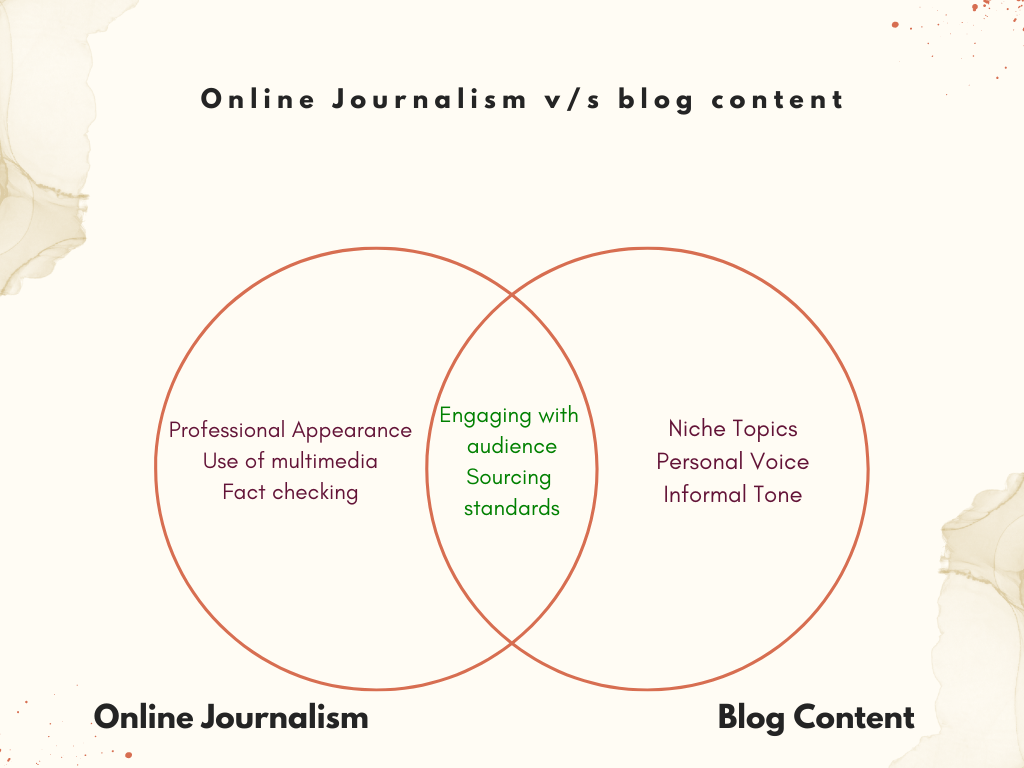
As the online world grows and becomes more fast-paced, journalism as an industry has boomed globally. While online platforms were not designed with journalism in mind, they became an important part of journalism starting in the 2010s and are now routinely factored into journalistic work, as described in The American Journalism Handbook. In these events of online publications, magazines and bloggers, the lines of true and honest journalism have seemed to blur.
Online journalism and blogs have significant differences. In this blog, let’s explore the key differences and where they intersect.

Example of Online Journalism:
What time is the Harris v Trump presidential debate? Everything to know
This story was published on Sept 10th, 2024 on BBC by Sam Cabral. The story captures various elements that the journalist wants reads to delve upon. The story covers the presidential debate between Donald Trump and Kamala Harris, which was scheduled for September 10 at 9:00 PM EDT, that took place at the National Constitution Center in Philadelphia. It highlights the significance of this debate as the first direct confrontation between the two candidates, noting the tight race in both national and swing state polls. The rules of the debate include muted microphones to minimize interruptions and restrictions on props and notes. The article by digital journalist – Sam Cabral, discusses the candidates’ preparation strategies, the potential impact of the debate on their campaigns, and mentions a future vice-presidential debate.
Fact based reporting, public interest and ethical standards are three factors that prove this story should be categorized as online journalism. The story provides verified facts about the then upcoming debate, including details on time, location, and format. It covers a major event in the U.S. presidential race, which has significant political and social relevance. And lastly, the article adheres to journalism ethics by offering clear, and balanced information without promoting bias.
Above was an example of Online Journalism, now let us look at an example of an online story that is not considered as online journalism reasons.
How to Lose Weight Fast: Top 10 Steps for Success
This blog post lists various methods to lose weight, focusing on successful trends and quick fixes. The content is filled with vague advice and unverified claims, such as recommending certain supplements without any credible sources or scientific backing.
The three factors why this story isn’t online journalism is because it lacks verified information, commercial intent, and no adherence to journalistic ethics. The article relies on trends and unverified claims rather than fact-checked or scientifically supported information. There’s no attribution to experts or studies. The article seems more focused on promoting other services provided by NASM, or trends for marketing purposes rather than serving the public interest or informing through impartial reporting. Most importantly, there’s no effort to maintain accuracy, balance, or accountability in the information shared. It doesn’t reflect the core values of journalism, such as transparency or fairness.








Blue Techker I appreciate you sharing this blog post. Thanks Again. Cool.